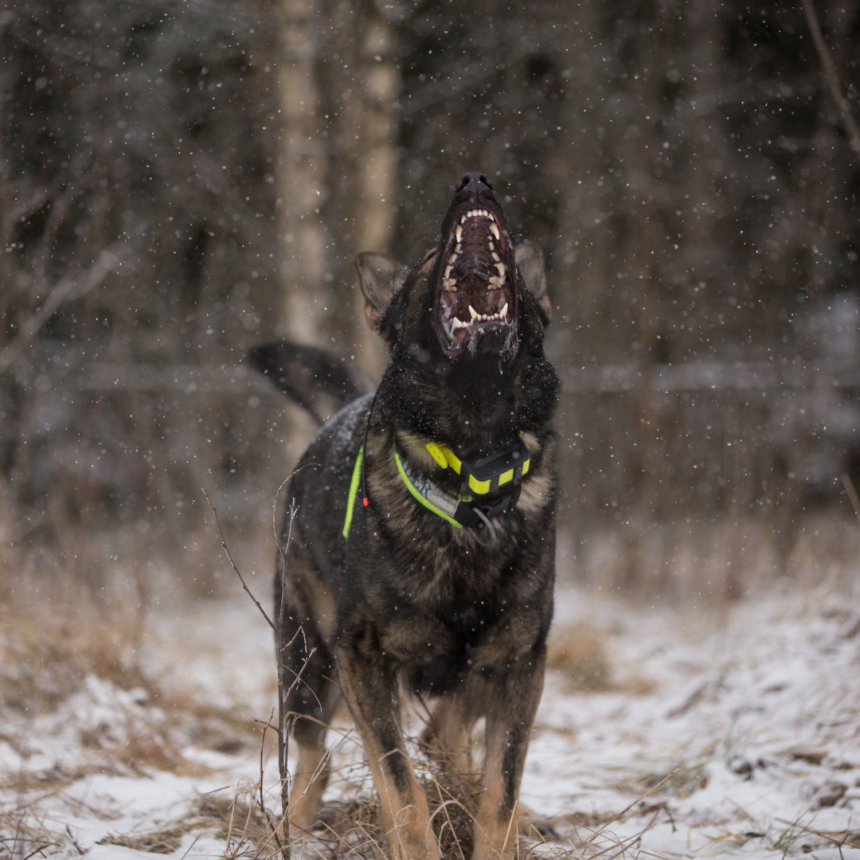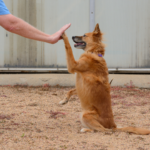Introduction
In the quiet serenity of the night, the incessant barking of a dog can disrupt the peacefulness of a neighborhood and, more importantly, disturb the much-needed rest of both the canine culprit and their owners. Addressing the challenge of excessive dog barking during nighttime hours is not only essential for the well-being of all involved but is also a common concern among dog owners. The harmony of a good night’s sleep for both pets and their human companions often hinges on finding effective strategies to curb this nocturnal nuisance.
Understanding the profound importance of tackling excessive barking at night is the first step towards creating a peaceful coexistence. This behavior can stem from various reasons, including loneliness, fear, or territorial instincts. Therefore, a comprehensive approach is necessary to identify the underlying causes and implement tailored solutions. This article aims to shed light on the multifaceted issue of nighttime barking, providing insights into the challenges faced by dog owners and offering practical, humane solutions to restore tranquility to the nocturnal hours.
Understanding Nighttime Dog Barking
Nighttime dog barking, while common, poses a significant challenge for dog owners seeking peaceful sleep. The incessant barking during the night can be perplexing, prompting a quest for understanding and effective solutions. The causes of this behavior are diverse, ranging from loneliness to anxiety or a response to external stimuli. Unraveling the root cause is essential for tailoring solutions to address the unique needs of each dog.
Identifying the potential issues and challenges associated with nighttime barking is crucial. Deciphering whether the barking is a reaction to external noises, an expression of anxiety, or simply a plea for attention can be challenging. Lack of clarity in understanding the underlying cause may hinder the development of an effective strategy, leading to prolonged disturbances during the night.
Creating a Comfortable Sleeping Environment
Ensuring a tranquil and uninterrupted night’s sleep for both dogs and their owners involves creating a comfortable sleeping environment tailored to the unique needs of our canine companions. The importance of a restful night cannot be overstated, and addressing potential issues associated with nighttime dog barking is essential for fostering a peaceful atmosphere.
Identifying potential issues often revolves around understanding the factors contributing to a dog’s restlessness during the night. Dogs may react to external stimuli, experience anxiety, or simply lack a comfortable space for undisturbed sleep. Challenges arise when the specific cause of nighttime barking remains elusive, hindering the implementation of effective solutions.
To tackle these challenges, practical solutions are imperative. Crafting a cozy and secure sleeping space is a foundational step. This may involve providing a comfortable bed, using blackout curtains to minimize external disturbances, and incorporating soothing elements such as calming scents or soft background music. Addressing the root cause of anxiety through positive reinforcement training during waking hours can also contribute significantly to curbing nighttime disturbances.
Positive Reinforcement Training
In the quest to curb nighttime dog barking, positive reinforcement training emerges as a humane and effective approach. This training method focuses on rewarding desired behaviors, fostering a positive connection between the dog and the owner. Understanding the nuances of positive reinforcement training can be instrumental in addressing the challenges associated with excessive barking during the night.
One potential issue with nighttime barking is the limited visibility of the behavior, making it challenging for owners to identify and correct. Positive reinforcement training encourages attentiveness during waking hours, creating a strong foundation for addressing nighttime behaviors. By rewarding quiet and calm behavior during the day, dogs learn the desired conduct that extends into the night.
Consistency is key in positive reinforcement training. An issue may arise if the training is sporadic or lacks uniformity in its application. To overcome this, establish a clear routine for reinforcement, ensuring that rewards are timely and consistent. Consistent positive reinforcement fosters a strong association between the reward and the desired behavior, reinforcing the training’s effectiveness.
Practical solutions include incorporating treats, praise, or toys as rewards when your dog exhibits quiet behavior at night. This positive reinforcement creates a positive association with nighttime calmness. Additionally, utilizing clickers or verbal cues during training can enhance communication and reinforce the desired behavior.
Addressing Anxiety and Stress
Addressing anxiety and stress in dogs exhibiting nighttime barking is crucial for fostering a tranquil sleeping environment. Understanding the root causes of anxiety can be instrumental in devising practical solutions to mitigate excessive barking.
One potential issue associated with nighttime barking stemming from anxiety is the challenge of identification. Dogs, unable to express anxiety through conventional means, resort to barking as a coping mechanism. Recognizing signs of anxiety, such as pacing, panting, or destructive behavior, becomes essential. Practical solutions involve observing and understanding your dog’s behavior during the day to identify triggers and patterns related to nighttime anxiety.
Creating a serene sleeping environment is paramount to alleviating anxiety. Issues may arise if the sleeping area is noisy, uncomfortable, or lacks a sense of security. Implementing solutions such as a cozy bed, soft lighting, or soothing background sounds can significantly contribute to reducing anxiety-related barking.
Practical solutions extend to the incorporation of anxiety-relief tools and techniques. Subtly referencing resources on calming aids, such as pheromone diffusers or anxiety wraps, without specifying brands allows owners to explore suitable options. Additionally, integrating calming activities into the dog’s routine, such as a pre-bedtime walk or interactive toys, can provide mental stimulation, helping to alleviate anxiety.
Establishing a Consistent Routine
Establishing a consistent routine is a fundamental strategy for curbing nighttime dog barking, fostering a sense of predictability that contributes to a peaceful sleep environment. The importance of routine lies in providing dogs with a structured daily schedule, reducing anxiety and minimizing potential triggers for barking.
One challenge associated with nighttime barking is often rooted in irregular routines. Dogs thrive on predictability, and a lack of consistency can lead to confusion and heightened anxiety, resulting in disruptive barking behavior. Identifying this issue emphasizes the need for owners to establish and adhere to a steady routine for their dogs.
Practical solutions begin with creating a structured daily schedule encompassing feeding times, walks, play sessions, and bedtime. Consistency in these activities provides dogs with a sense of security, contributing to a calmer demeanor during the night. Subtly referencing relevant resources on canine behavior and training without specifying brands allows owners to explore various tools and techniques that complement their efforts in establishing a routine.
Furthermore, incorporating relaxation techniques into the bedtime routine can be beneficial. Activities such as a calming massage, gentle brushing, or soft music can signal to the dog that it’s time to wind down, reducing the likelihood of disruptive barking. Emphasizing the neutral and informative tone ensures that readers comprehend the significance of routine in addressing nighttime barking issues and can implement practical solutions tailored to their dog’s individual needs.
Conclusion
In conclusion, addressing nighttime dog barking is not only about restoring peace to your home but also ensuring the well-being of your four-legged friend. By understanding the root causes and implementing practical strategies, you can transform restless nights into moments of serenity, strengthening the bond between you and your beloved pet. Explore the suggested solutions, and embark on a journey toward nights filled with harmony and undisturbed sleep for both you and your furry companion.









